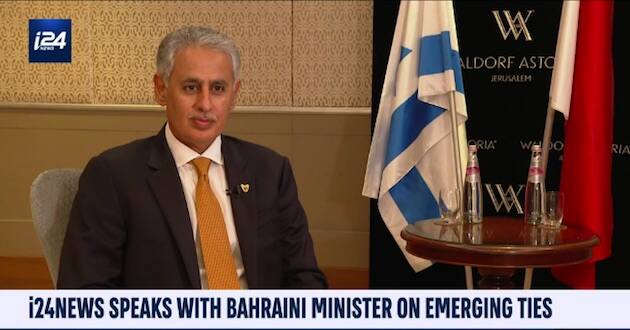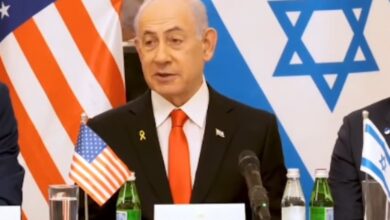
The historic treaties secured by the Trump administration between Israel and Arab states is already bearing fruit as Bahrain defends Israel against boycotts.
Members of the press were informed by Bahrain’s Minister of Industry, Commerce and Tourism that the country would consider all goods exported from the West Bank (Judea and Samaria) as coming from “Israel,” not the “Palestinian Territory.”
All products of Israel, stated Zayed Alzayani, will be treated the same, he specified, rejecting a policy adopted by other countries of treating goods and services from Israel differently depending on their precise origin.
Alzayani added that there would be “no restrictions” or “special rules” for products from Judea and Samaria or the Golan, explaining that Bahrain sees Israeli companies in the same light as those from Italy, India, China, Germany, or Saudi Arabia.
Referring to relations with Israel as a “new chapter,” Alzayani appeared to deal a significant blow to entities such as the European Union and the United Nations, which have pursued a labeling policy that ostracizes Israeli goods from Judea and Samaria. The actions of the EU and UN have encouraged boycotts against Israeli products and companies – even when those companies employ hundreds of thousands of Palestinians.
Alzayani told the Times of Israel that goods from Judea and Samaria and the Golan can be sold as “Products of Israel” in Bahrain and the country will ignore the boycotts.
In taking this position, Bahrain complies with U.S. guidelines announced by Secretary of State Mike Pompeo that require labeling all goods emanating from places where Israel maintains civilian control as “Products of Israel” or “Made in Israel.”
The stance announced by Alzayani defies European Union policy, which requires the aforementioned products to carry special labels distinguishing them from other Israeli products.
It is also a blow to the Boycott, Divest and Santion (BDS) movement, which in addition to seeking wholesale boycotts of the Jewish state sees flagging the sale of goods from Judea and Samaria (the West Bank) as a positive step. Labeling them is viewed as a step toward banning them completely.
Recently, Pompeo denounced BDS as inherently “anti-Semitic,” a charge that has dogged the group since its inception.
Similarly, Bahrain’s position flies in the face of United Nations Security Council Resolution 2334, which requires countries to “distinguish, in their relevant dealings, between the territory of the State of Israel and the territories occupied since 1967.”
Israel came to control the area of the Golan and “West Bank” after the 1967 war in which it was invaded by neighboring Jewish states including Syria which had controlled the Golan and Judea, Samaria and the eastern half of Jerusalem which had been occupied by Jordan.
Against all odds, Israel beat back the invasion of its neighboring Arab nations, defeating them so roundly that it humiliated the attackers. Israel retook areas that had been traditionally part of ancient Israel before the Roman invasion which nenamed the area “Palestinia.”
Alzayani has been is Israel this week signing agreements for trade, tourism, and commerce, meeting with Prime Minister Benjamin Netanyahu and various cabinet ministers.
–Dwight Widaman and wire services







